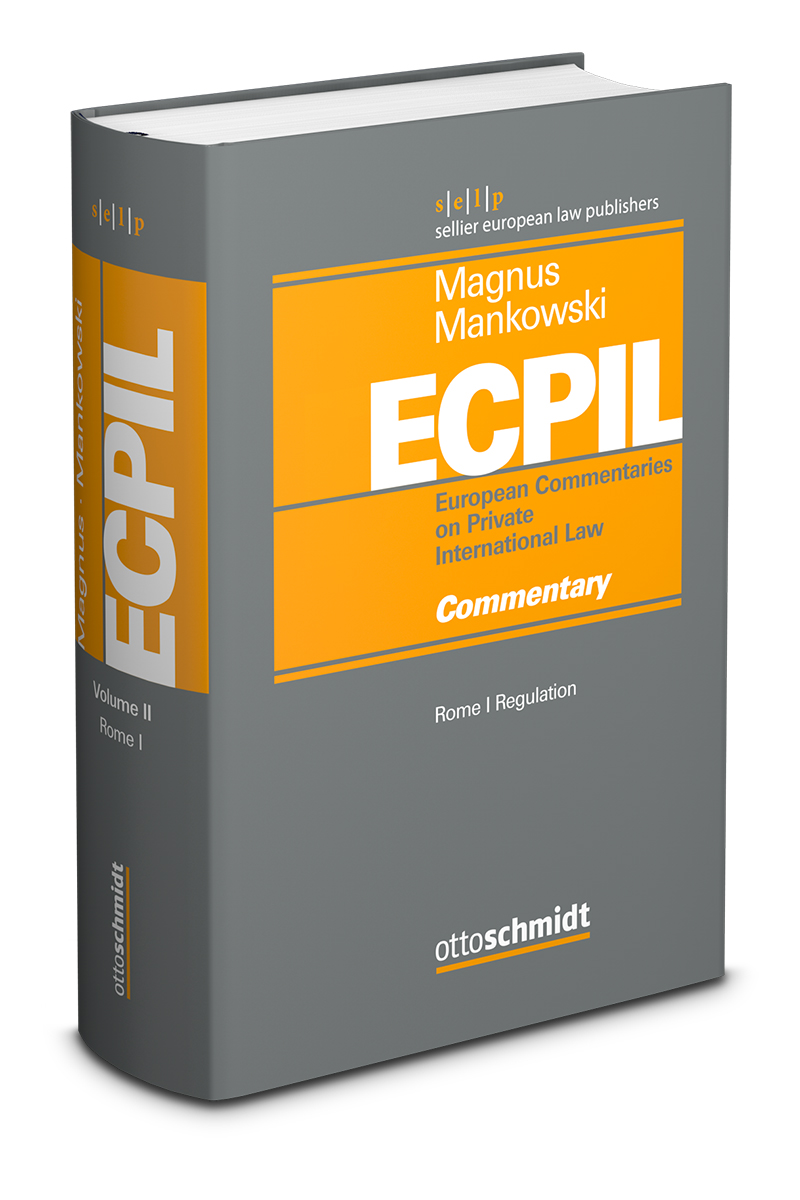by Jonas Steinle
Jonas Steinle, LL.M., is fellow at the Research Center for Transnational Commercial Dispute Resolution (www.ebs.edu/tcdr) at EBS Law School in Wiesbaden.
On 11 December 2014, Advocate General Jääskinen delivered its Opinion in Case C-352/13 (CDC). The case deals with the application of different heads of jurisdiction of the Brussels I Regulation to cartel damage claims.
The facts
The claim arises out of a complex cartel in the sector of the sale of hydrogen peroxide that covered the entire European Economic Area and had been going on for years before it was disclosed and fined by the European Commission. The Commission established that there was a single and continuous infringement of Art. 101 TFEU. The claimant, a Belgian company that is the buyer and assignee of potential damage claims resulting from this cartel, brought proceedings against the members of the cartel at the regional court (Landgericht) in Dortmund. The defendants in the case have their seats in different Member States including one defendant who has its seat in Germany.
Being seized in this complex case, the Landgericht Dortmund struggles with the application of several heads of jurisdiction under the Brussels I Regulation in order to establish its own jurisdiction. Therefore, the Landgericht Dortmund referred to following three questions to the CJEU as an order for reference:
1. Must Art. 6 No. 1 of the Brussels I Regulation be interpreted in a way that under circumstances like in the case at hand the claims are so closely connected that it is expedient to hear and determine them together to avoid the risk of irreconcilable judgments from separate proceedings? Is it relevant that the claim against the defendant who is domiciled in the Member State of the seized court was withdrawn after service of process to the defendants?
2. Must Art. 5 No. 3 of the Brussels I Regulation be interpreted in a way that under circumstances like in the case at hand the place where the harmful event occurred or may occur may be located with respect to every defendant in any Member State where the cartel agreement had been concluded or implemented?
3. Does the well-established principle of effectiveness with respect to the enforcement of the prohibition of restrictive agreements allow to take into account a jurisdiction or arbitration agreement, even if that would lead to the non-application of jurisdiction grounds such as Art. 5 No. 3 or Art. 6 No. 1 Brussels I Regulation?
The Opinion
As for the application of Art. 6 No. 1 of the Brussels I Regulation, the Advocate General referred first to the well-established principle of the CJEU that a risk of irreconcilable judgments must arise in the context of the same situation of fact and law. For the same situation of fact, the Advocate General simply referred to the binding decision of the European Commission that had established a single and continuous infringement of Art. 1010 TFEU. For the same situation of law the Advocate General pointed out that the members of a cartel are severally and jointly liable and that there was the risk that different Member State courts would interpret the joint and several debt differently which could lead to conflicting decisions in different Member States courts. Furthermore, the Advocate General pointed out that Art. 6 para. 3 Rome II Regulation implicitly refers to Art. 6 No. 1 Brussels I Regulation so that in sum the Advocate General held that Art. 6 No. 1 Brussels I Regulation might be applied to a case like the one at hand. As for the withdrawal of the claim against the German anchor-defendant, the Advocate General did not consider this to be relevant for the jurisdiction of the referring court since he considered the service of process to be the relevant point in time to fulfil the criteria of Art. 6 No. 1 Brussels I Regulation.
With respect to Art. 5 No. 3 Brussels I Regulation, the Advocate General differentiated, again according to well-established case law of the CJEU, between the place giving rise to the damage and the place where the damage occurred. However, the Advocate General considered both alternatives of Art. 5 No 3 Brussels I Regulation to be inapplicable to the case at hand. The Advocate General observed that in a case of a long-standing and wide-spread cartel like the one at hand, it is essentially impossible to identify one single place where the event giving rise to the damage took place. Similarly, the place where the damage occurred would lead to the place of the claimant’s seat as the relevant place of jurisdiction which is contrary to the purpose of the Brussels I Regulation. Hence, the Advocate General held that Art. 5 No. 3 Brussels I Regulation is in applicable in a case like to one at hand.
Finally, Advocate General Jääskinen considered the third question with respect to jurisdiction and arbitration agreements. He therefore drew the line between jurisdiction agreements under Art. 23 Brussels I Regulation on the one hand and jurisdiction agreements that designate Non-Member States courts or arbitration agreements on the other hand. As for agreements under Art. 23 Brussel I Regulation, the Advocate General referred to the principle of mutual trust and held that the principle of effectiveness could not hinder the application of Art. 23 Brussels and thereby the derogation of other grounds of jurisdiction in cartel damage claims. Contrarily, the Advocate General held that the principle of effectiveness with respect to the enforcement of the prohibition of restrictive agreements might render agreements of the second type inapplicable if an effective enforcement of EU competition law would not be assured.
Evaluation
The Opinion of the Advocate General is grist to the mill of the ongoing enhancement of private enforcement of competition law in the European Judicial Area. After the Directive on antitrust damage actions has been signed into law on 26 November 2014, jurisdiction in cartel damage claims is the last resort that has been left untouched so far. Jurisdiction is the first hurdle that potential claimants have to overcome in these types of cases. As one can see from the proceedings pending before the Landgericht Dortmund, these proceedings can be extremely complex and time-consuming. Guidance on these issues by the CJEU is therefore much awaited.
As the Advocate General points out in his Opinion (para. 7), it is the first time that the CJEU will have to decide whether and to what extent the substantive EU law (e.g. Art. 101 TFEU) influences the jurisdictional rules of the Brussels I Regulation in their application. According to the Advocate General, the Brussels I Regulation is not very well suited to enhance private enforcement of competition law (para. 8). The consequences that the Advocate General draws from this finding are noteworthy: As considers Art. 5 No. 3 Brussels I Regulation, being the core jurisdictional rule for cartel damages claims, the Advocate General simply promotes to not apply this rule in complex cases such as the one at hand (para. 47). He even goes further and calls for the European legislator to introduce delict-specific jurisdictional rules into the Brussels I Regulation (para. 10).
This line of argumentation is a striking move. The non-application of a head of jurisdiction in a complex case is somewhat surprising. However, this would not solve the existing problems since it remains unclear in which cases Art. 5 No. 3 Brussels might be still applied then. The call for the introduction of delict-specific rules into the Brussels I Regulation is even more problematic since it breaks with the general scheme of the Brussels I Regulation as a general and cross-cutting legal instrument that might uniformly be applied to any case that is not excluded from its scope. Instead of creating more exceptions in this complex area of law, the CJEU should build on the existing system of the Brussels I Regulation and come forward with some guiding principles for the referring court which are drawn from the idea of procedural justice and not so much from substantive law influences from the specific area of law.
 of the Rome I Regulation on the law applicable to contractual obligations.
of the Rome I Regulation on the law applicable to contractual obligations.